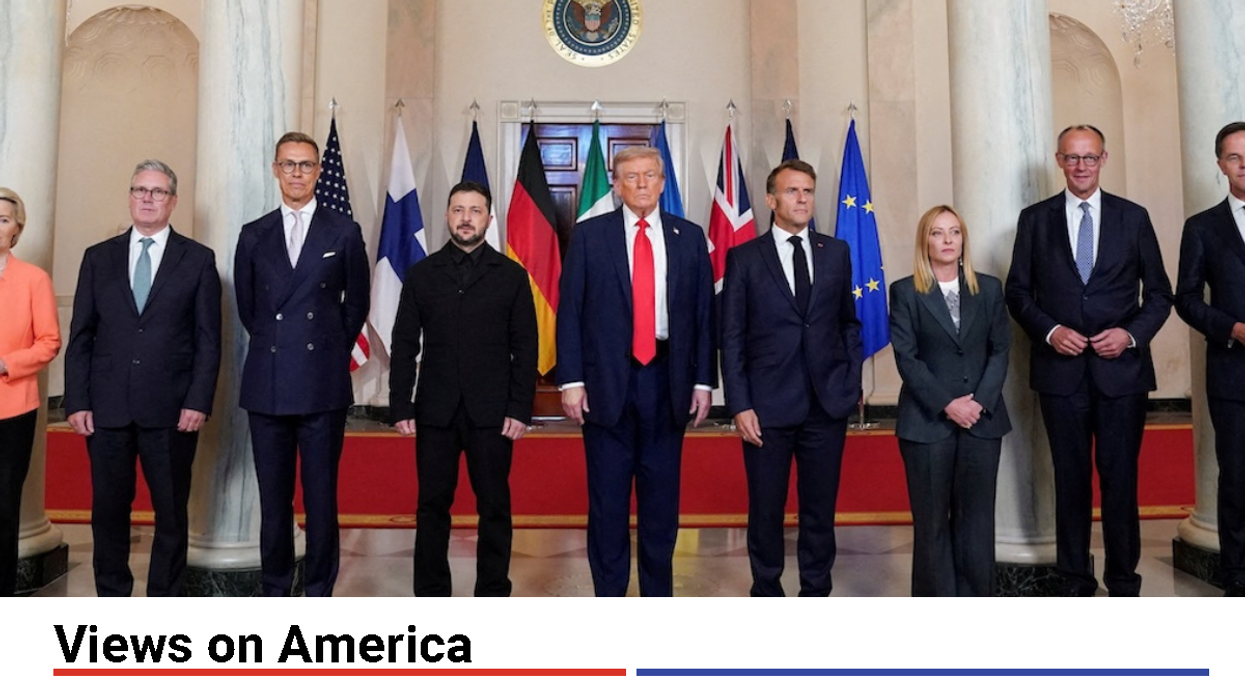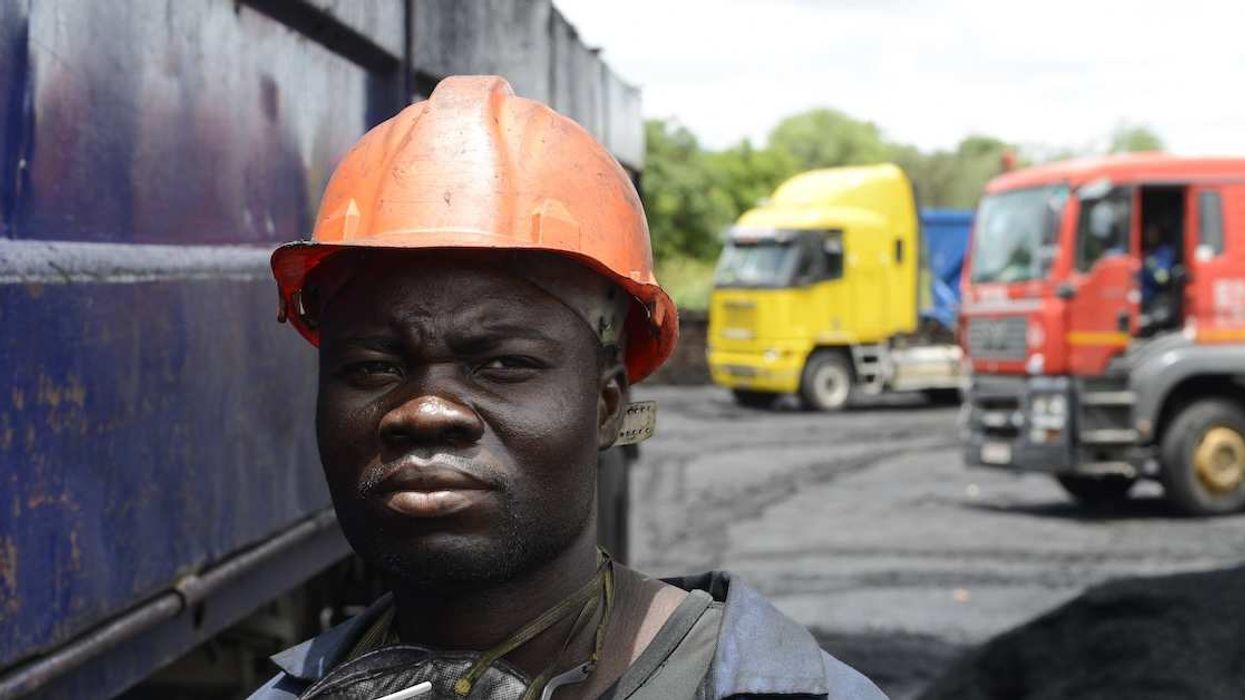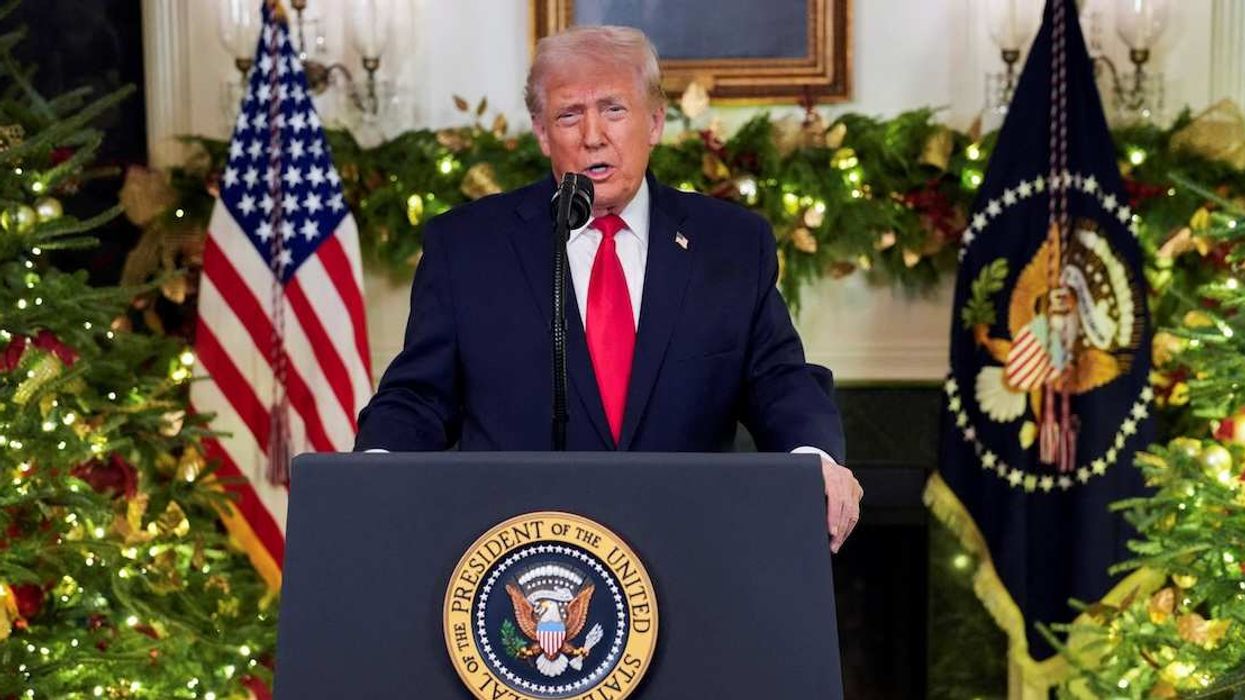I am holding a copy of The Economist magazine. The cover photograph shows Vladimir Putin, bundled up in a heavy black overcoat. His face is turned away from the camera. He stares out at the Moscow skyline. Above him are the words: The Beginning of The End for Vladimir Putin.
With Ukraine’s recent thrust into the Kursk region, the first time anyone has invaded Russia since World War 2, you might think Putin suddenly does look vulnerable, uncertain, maybe even teetering on the edge of collapse.
But the magazine issue isn’t from this week. It came out on March 3, 2012.
At that time, Putin – then in power for 13 years already – was about to return to the Russian presidency in an election that everyone understood was rigged. Several hundred thousand protesters were in the streets of Moscow, led by a charismatic young dissident named Alexei Navalny. “His time is running out,” the magazine warned.
In the dozen years since his end supposedly began, Putin has met three different US presidents, ordered two illegal invasions of Ukraine, rigged two more elections of his own, eliminated his most prominent critic, and even survived a major insurrection.
Experts have predicted at least half a dozen of the last zero collapses of Putin’s regime. Even I, at one point, thought he was spinning an untenable “Fairy Tale.” The Russian proverb says you measure seven times before cutting. By that standard, Putin seems to be a ruler beyond measure entirely.
He has, of course, has done no great wonders for Russia lately. Despite what Tucker Carlson may tell you from a Moscow grocery store, Russia today is a corrupt, militarized, and increasingly isolated economy. The population is shrinking and the oil-based business model is slowly becoming a fossil of its own as the global energy transition accelerates. Meanwhile, Putin’s neo-imperialist outbursts have brought immense destruction to Ukraine, yes, but they’ve done no favors for Russia’s own future either.
So how does the Teflon Tsar do it?
For one thing, Putin has mastered the dark art of the Russian system. Backed by the men with guns – his old KGB cronies – he has spent years honing the role of indispensable arbiter, balancing the various clans of spooks, bureaucrats, and businessmen who constantly war with each other, but who rise against Putin himself only at the risk of falling out of a window.
In this sense, he is more godfather than goon.
And to the Russian people, easily moved to national pride but also plagued by political apathy, he uses a totally captive media to tell a good story. Putin, as he tells it, is the last champion of Russia, an old, great civilization, always unfairly held back by a decadent, perfidious West. And in that role, Vladimir Putin makes sure there is no viable alternative to Vladimir Putin.
But perhaps most importantly, his economy is simply hard to kill. For years, Putin built up a war chest, hiring some of the world’s best financial whizzes to run the books. Now, despite the best attempts of the West to sanction Russia into submission, GDP is set to grow faster than most of the world’s rich economies, this year and consumer confidence is surprisingly high.
That’s partly because China and India have continued to purchase Russian oil, yes. But it’s also because of something else.
As the Russia scholar Cliff Gaddy once put it, Russia’s economic model, which basically pulls money out of the ground and uses it to pay pensions, buy weapons, and keep state employees happy, is “the cockroach of economies — primitive and inelegant in many respects but possessing a remarkable ability to survive. Perhaps a more appropriate metaphor is Russia’s own Kalashnikov automatic rifle — low-tech and cheap but almost indestructible.”
Over the past two weeks, the keeper of that Kalashnikov cockroach has suffered an especially sharp blow. Ukraine’s invasion of Kursk is, to my knowledge, the only time the core territory of a nuclear power has been invaded. (Sorry Argentines, the sheep pastures of the Falklands aren’t quite the marchlands of Mother Russia.)
The Kremlin, clearly caught off guard, is struggling to respond. Thousands of Russians have been evacuated. The Ukrainians say they don’t plan to hold the territory, but they also seem ready to push further if need be.
In principle, this should be intolerable for a leader like Putin. The boss can’t protect his own borders? The elites must be whispering that the old man is slipping. Surely it’s another beginning of Putin’s end.
Don’t bet on it.
We’ve been here before. A little more than a year ago Wagner mercenary group founder Yevgeny Prigozhin led an insurrection of thousands of armed men, marching unopposed through Southern Russia and coming to within 125 miles of Moscow before flinching. The spell of Putin’s power looked certain to be broken. Instead, it was Prigozhin who met his end in a fiery plane crash two months later.
It seems to me that the obsession with predicting Putin’s demise comes less from a detailed understanding of what’s happening inside the Kremlin, and more from a kind of wishful, indignant disbelief that a leader like Putin can keep getting away with the things he gets away with. The killing of dissidents. The rigging of elections. The invasion of neighbors. He is a leader who has made a career out of bending back that “moral arc of the universe” we keep hearing about.
Still, if there’s something different about the Kursk advance, maybe it’s this: it’s a reminder that Putin isn’t the only nine-lives leader in the neighborhood. How many times has Ukrainian president Volodymyr Zelensky been on the ropes, his counter-offensives doomed, his end beginning?
It’s a reminder that two years after Russia’s invasion of Ukraine, perhaps the “end” of Putin, or of Zelensky, simply isn’t a viable goal -- for either side.



















